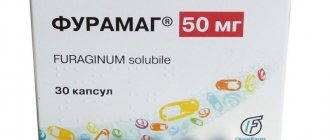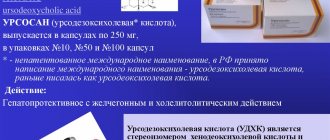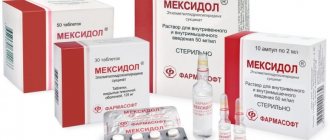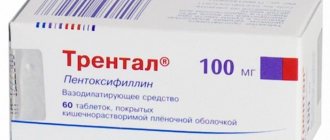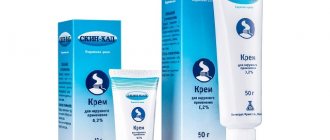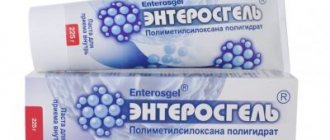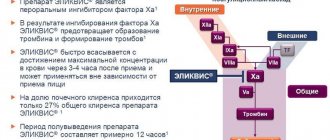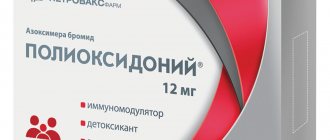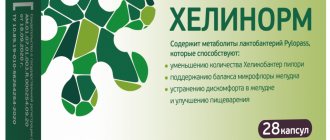Treatment of bronchopulmonary diseases with difficult to separate sputum always includes the use of expectorants and mucolytic drugs. Among a large assortment of similar products, the drug ACC, which is available on the pharmacological market in several forms with different concentrations of the active substance, has received praise from doctors and patients.
The drug has been on the market for quite a long time, is often used in pediatrics, is well tolerated and interacts well with other medications. The cost of ACC is quite high, so many are looking for its inexpensive analogues.
Before considering what can replace ACC, it is worth familiarizing yourself with the brand itself, its composition, properties and other information.
Release forms and indications for use
ACC belongs to the group of mucolytic and expectorant agents with detoxifying properties. Used for various diseases affecting the ENT organs and respiratory system.
The drug has the ability not only to dilute mucus, but also to effectively remove it from the lungs and bronchi.
The active substance of ACC is acetylcysteine, which acts as follows:
- reduces the viscosity of sputum;
- reduces the ability of bacterial cells to adhesion (stick) to mucous membranes;
- neutralizes the harmful effect of free radicals (particles entering the respiratory tract), thereby stopping the inflammatory process.
The manufacturer of ACC - Pharmacological Germany provides its products in several forms, which allows you to select the required dose of medicine for children and adults:
Powder or granules for the preparation of a suspension of 100 mg. Syrup 100 ml. Effervescent tablets 100 mg, 200 mg, 600 mg long. Solution for injection ACC injection - 100 mg and 300 mg in 1 ml. Price – 370 rubles.
- Granules (orange) for preparing a suspension. Contains 100 mg of acetylsteine in 5 ml of finished syrup. Used in pediatrics. Available in a 60 ml bottle with a measuring spoon for convenient dosing. Cost from 250 rubles.
- Effervescent tablets and powder for preparing a solution. Available in 100, 200 or 600 mg dosages. For adults, ACC Long (600 mg) can be used. Available in packaging No. 20 bags or in an aluminum tube No. 10 effervescent tablets. You can buy it in pharmacies for prices ranging from 250 to 400 rubles.
- ACC solution for injection is produced in ampoules of 2 ml. Contains 100 mg and 300 mg of active ingredient in 1 ml. Price from 350 rubles.
ACC is highly effective in the treatment of respiratory tract diseases, both acute and chronic, which are accompanied by a wet cough with difficult to separate sputum.
In addition, the medicine has established itself as an effective remedy for protracted inflammatory pathological processes in the nasal cavity and its paranasal sinuses.
The instructions for the drug contain the following indications for prescribing the drug:
- Acute and chronic bronchitis.
- Laryngitis.
- Tracheitis.
- Acute bronchitis and tracheobronchitis.
- Pneumonia.
- Laryngotracheitis.
- Bronchiectasis.
- Emphysema.
- Cystic fibrosis.
- Tuberculosis.
In addition to the main indications, the drug can be used for prolonged sinusitis, sinusitis, as well as otitis media, when viscous sputum is present in the mucous membranes of the ENT organs.
The mechanism of action of ACC is determined by its composition. After taking the medicine, the active component, acityylsteine, not only thins the mucus, but also removes it from the respiratory tract. In addition, it has a moderate anti-inflammatory effect and improves the secretomotor functions of the body.
How does ACC work?
According to the instructions, ACC is classified as a means of thinning mucus and facilitating its removal.
Acetylcysteine can make bronchial secretions less viscous. The mucolytic effect persists even if the sputum is mixed with pus.
This substance can also increase cell protection from the effects of severe inflammation and have a detoxic effect on the body.
In people diagnosed with cystic fibrosis or chronic bronchitis, preventive treatment helps reduce the number of exacerbations and make them easier to progress.
Dosages
ACC cough medicine can be used for adults and children. The main thing is to correctly calculate the dose that will correspond to the patient’s age.
In pediatrics, ACC is used in syrup or powder, 100 mg. from 2 years old. The daily dose should not exceed 200 – 300 mg. Children from 6 to 12 years old are prescribed 300–400 mg per day.
After 12 years, you can take the drug in an adult dosage of 600 mg per day, which is equal to 3 packets of 200 mg or 1 effervescent tablet (600 mg).
It is recommended to take the drug after meals. Granules and effervescent tablets are first dissolved in warm boiled water - 200 ml. The duration of the course of treatment is 5 – 7 days.
Ampoules for injections are often used in hospital settings. The dose is selected individually for each patient.
In addition to oral administration of the medication, ACC can be used for inhalation using a nebulizer. For nebulizer therapy, the drug is diluted with 9% sodium chloride in a 1:1 ratio.
Analogs for the active substance
There are many drugs based on acetylcysteine on the pharmaceutical market.
Fluimucil
Manufacturer: Zambon Switzerland Ltd. (Italy, Switzerland). The medicine is available in several forms:
- Granules for preparing a solution. The content of acetylcysteine is 200 mg per 1 g of the drug. The granules are light yellow in color, with orange inclusions. Reconstituted drink – with orange flavor. The drug is indicated for patients older than 2 years. Available in 10 and 20 sachets per pack. Price – 170-180 rubles.
- Effervescent tablets are white pills with a rough surface. One tablet contains 600 mg of active substance. The medicine is indicated for patients over 18 years of age. The package contains 10 or 20 pills. Cost – 133-393 rubles.
- The solution for internal use and inhalation is clear or slightly opalescent, colorless, with a raspberry taste. The medicinal liquid is available with different contents of the active substance - 20 mg/ml and 40 mg/ml. The drug can be used by patients from 6 years of age. Packaged in bottles of 100 and 200 ml. Price – 121-170 rubles.
- The solution for injection contains 10 mg/ml acetylcysteine, ampoules of 3 ml. Used for patients over 18 years of age. Price – 208 rub.
The conditions for using Fluimucil are similar to ACC. However, there are several differences:
- Fluimucil effervescent tablets are available in only one dosage - 600 mg of acetylcysteine, while ACC is produced with a content of 100, 200 and 600 mg. In addition, the latter remedy can be drunk hot.
- Bags. Both products are available in 20 pieces per pack, but ACC is produced in different flavors and with different contents of the active ingredient (100 and 200 mg each), Fluimucil - only 200 mg each.
- Fluimucil is not produced in the form of a children's syrup, ACC - in the form of a solution for oral administration and inhalation.
Acetylcysteine
- Effervescent tablets containing the active substance – 200 and 600 mg. Packaged in 24 and 12 pieces. Price – 211-215 rub.
- Powder for dissolution - 100 and 200 mg of acetylcysteine. There are 20 sachets in a package. Price – 120-160 rubles.
Analogues of ACC are also:
- Atsestad. Available in the form of regular and effervescent tablets. The content of one pill is 100, 200 or 600 mg of active substance.
- Mukonex is a granular powder for dissolution in water (in 1 g - 0.1 g of the main component).
- Vicks Active ExpectoMed – in effervescent tablets (dosage – 200 and 600 mg of acetylcysteine).
Contraindications and side effects
ACC is well tolerated, but it is necessary to exclude or limit the use of the drug in the following conditions and pathologies:
- intolerance to the composition;
- period of pregnancy and lactation;
- peptic ulcer of the stomach and duodenum;
- renal and liver failure;
- pulmonary hemorrhages.
ACC is not recommended to be taken with other mucolytics or antitussive drugs, as well as with products that contain codeine.
In rare cases, side effects may occur after taking the drug:
- allergic skin reactions;
- anaphylactic shock;
- weakness and drowsiness;
- bowel dysfunction;
- nausea, urge to vomit.
The appearance of such symptoms may be a reason to discontinue the drug or reduce its dose. If for some reason it is not possible to take ACC, you should consult a doctor who can replace it with an analogue.
When ACC is contraindicated, possible adverse reactions
The drug in any dosage form is not prescribed for hypersensitivity to acetylcysteine or other substances included in the composition.
The manufacturer also lists general contraindications as:
- age up to two years;
- aggravated gastric and duodenal ulcers;
- coughing up blood, bleeding from the lungs;
- state of pregnancy and breastfeeding period.
Effervescent tablets with a dosage of 100 mg are contraindicated in case of lactase deficiency, impaired absorption of substances in the intestines, or lactose intolerance.
According to the instructions, ACC 600 mg tablets and higher dosage powder are contraindicated for children under 14 years of age.
The powder is contraindicated in case of fructose intolerance, intestinal malabsorption syndrome, or sucrose deficiency.
Possible side effects of ACC have been studied in great detail. The main ones include:
- manifestations of allergies. In rare cases, itching, rashes, angioedema, increased heart rate, and a drop in blood pressure are possible. Anaphylactic shock is extremely rare;
- deterioration of the respiratory system: bronchospasms, breathing disorders;
- disruptions in the gastrointestinal tract: the appearance of heartburn, pain in the abdomen, attacks of nausea and vomiting.
Very rarely, tinnitus, headache, and fever may occur.
List of analogues cheaper than Azts for adults
Most of Acc's analogues have a more affordable price, but have the same therapeutic effect. The choice of any medication must be agreed with your doctor.
Generics (drugs with the same active ingredient) are:
- Acetylcysteine is a structural analogue of domestically produced ACC, has the same characteristics, but a lower cost, which does not exceed 220 rubles per pack of 20 packets of 200 mg.
- Acetal is a mucolytic based on acetylcysteine, also classified as a structural analogue. Often used as a synonym for ACC, it has a lower price - from 230 rubles. Available in 100, 200 and 600 mg doses.
- Mukobene – effervescent tablets 10 pcs. in a box costing from 180 rubles. The dose of acetylcysteine is 100, 200 and 600 mg.
- Mucomist is a similar drug for inhalation. Available in ampoules of 5 ml. The concentration of the solution is 20% (equivalent to 200 mg.) The price of the drug is from 170 rubles. per pack of 6 pieces.
- Mukonex - is produced in the form of a powder (granulate) for the preparation of a suspension, in bottles of 40 and 60 g. Cost from 200 rubles, dose of active substance – 100 mg.
Cheaper substitutes for ACC in terms of therapeutic effect include the following drugs:
- Bromhexine is an inexpensive analogue of ACC produced in Belarus with a similar therapeutic effect. It is used in the presence of viscous sputum in the lungs and bronchi. The price for 20 tablets is about 30 rubles. If you choose the same drug produced abroad (for example, Germany), its cost will not exceed 100 rubles.
- Ambroxol is a Russian analogue based on ambroxol hydrochloride in a dose of 30 mg. The drug has the ability to thin and remove mucus and is often used in the treatment of bronchitis and pneumonia. The price of the medicine is 40 rubles for 20 tablets. More expensive drugs based on ambroskol include Lazolvan, Ambrohexal, Flavomed, Ambrobene.
These are not all analogues that can replace ACC for coughs, but despite their lower cost, the choice of any medicine should be agreed with your doctor.
Analogues in action
In addition to drugs with acetylcysteine, there are other drugs that have the same effect as ACC, but the therapeutic effect is achieved using a different composition of components.
Preparations with ambroxol
The substance stimulates the work of epithelial villi and enhances the production of surfactant.
Ambrobene
Produced by the German concern Merckle. The drug helps thin mucus and improve coughing, but the mechanism of action is different than that of ACC. Unlike the latter, Ambrobene prevents the accumulation of toxic protein in brain neurons. The effect is achieved using the active substance – ambroxol. It has mucolytic and expectorant effects, and also suppresses inflammation, neutralizes pathogenic microorganisms, and relieves pain.
Ambrobene is available in the form of tablets, sustained-release capsules, solution for oral administration and inhalation, and injections. The content of the active substance is different for each pharmaceutical form - varies from 15 to 30 mg per dose. Syrup and oral solution can be used from 2 months, tablets - from 6 years.
Other medicines containing ambroxol:
- AmbroHexal (drops and capsules)
- Ambroxol (tablets, syrup)
- Ambrosan (tablets)
- Bronchorus (syrup and tablets)
- Lazolvan (syrup, lozenges for resorption, drops for administration and inhalation)
- Flavamed (tablets and drops)
- Helixol (tablets and syrup).
Medicines containing bromhexine
Bromhexine is a popular active ingredient in many mucolytics. Preparations based on it are produced by domestic and foreign manufacturers. The medicine is used to treat respiratory diseases with insufficient sputum production.
After ingestion, bromhexine is absorbed almost completely; its main metabolite, which has a therapeutic effect on the respiratory system, is ambroxol. The highest concentration in the blood is formed an hour after taking the medicine. The elimination period takes about 4-5 hours. The substance is highly active - it easily passes through the placenta and penetrates into breast milk.
As part of cough preparations, it effectively thins thick mucus, promotes expectoration, and has a mild antitussive effect. In addition, bromhexine stimulates epithelial tissue, which accelerates the removal of sputum. Promotes the formation of surfactant, which maintains the alveoli in a normal state and protects them from sticking together. The therapeutic effect of the drug appears 3-5 days after the first dose.
Preparations containing bromhexine are produced by pharmaceutical companies in various forms (syrups, dragees, tablets, solutions):
- Bromhexine Berlin-Chemie (dragée)
- Bromhexine MS (tablets)
- Bromhexine Nycomed (syrup)
- Bronchotil (syrup)
- Bronchosan (drops)
- Bronchostop (syrup)
- Solvin (tablets, elixir), etc.
Medicines with carbocisteine
There is also a group of drugs with a mucolytic effect based on carbocisteine. The substance activates certain enzymes of the cells of the bronchial mucosa, normalizes the ratio of the components of the bronchial secretion, due to which it loses its viscosity, becomes liquid and is easier to expectorate. In the same way, carbocisteine affects secretions in the paranasal sinuses, improving nasal breathing. Along the way, the substance helps restore damaged mucous tissues, reduces mucus production, and softens cough.
The drugs should not be taken during pregnancy and lactation. If necessary, their use should be coordinated with physicians. Contraindications are also exacerbation of gastrointestinal ulcers and glomerulonephritis, cystitis.
Bronchobos
It comes in the form of capsules, syrups for adults and children. The general restriction for use is age under three years.
- The capsules contain 375 mg of carbocisteine and are intended for treatment from 15 years of age. In acute cases of the disease, it is recommended to take 2 capsules 3 times a day. After the condition improves, the frequency of administration is reduced to 2 times a day. Price: (30 pcs.) – 316 rub.
- Syrups are available with active substance contents of 125 and 250 mg per 5 ml. Children from 3 to 6 years old are allowed to take 2-4 times 5 ml of 2.5% syrup, from 6 years old - 5-10 ml 3 times a day. Price: (200 ml) – 370-380 rub.
Other drugs with carbocysteine:
- Fluifort (syrup, granules for solutions)
- Fluditec (syrups for adults and children)
- Libexin Muco (syrups).
Preparations with medicinal plants
Medicines created using various herbal components can also replace ACC. Active herbal substances irritate the gastric mucosa, thereby stimulating the production of secretions, and at the same time activate the work of the ciliated epithelium. As a result, the resulting sputum is easily evacuated through the respiratory tract, the bronchi and lungs are cleared, and breathing is normalized.
The preparations use dry and liquid extracts of various medicinal plants - ivy, marshmallow, anise, plantain, coltsfoot, licorice, therompsis and others.
Gedelix
The active substance is ivy extract. The drug has an expectorant, mucolytic, anti-inflammatory and mild antiseptic effect. The drug is used for treatment starting from the age of two. Available in the form of drops and syrup. The composition of the drops is supplemented with mint and eucalyptus oils, the syrup – with anise.
The herbal preparation is contraindicated in pregnant and lactating women; it is not used in cases of sensitivity to phytocomponents, predisposition to laryngeal spasm, or bronchial asthma. Additional contraindications for the syrup are fructose intolerance and glucose-galactose malabsorption. Price: drops (50 ml) – 338 rubles, syrup (50/100 ml) – 370-380 rubles.
Mukaltin
The therapeutic effect is achieved thanks to marshmallow extract. The herbal remedy is available in tablets of 50 and 100 mg of the active substance. The drug can be used for treatment from the age of one year. It has practically no contraindications - only hypersensitivity to the components. It is not recommended to drink a mucolytic during pregnancy and lactation, but can be prescribed if the doctor deems it necessary. When treating with Mucaltin, combination with codeine-containing drugs should not be allowed to avoid stagnation of sputum and the development of complications. Price: (10 pcs.) – 12 rub., (20 pcs.) – 54 rub., (30 pcs.) – 62 rub.
Drugs with similar effects:
- Breast collections (No. 1, 2, 3,4) - raw materials for preparing solutions
- Bronchicum (drops, syrup, lozenges, elixir)
- Bronchipret (drops, syrup)
- Gerbion (syrup)
- Doctor Mom (syrup, lozenges)
- Dr. Theiss (drops, syrup, ointment)
- Ammonia-anise drops
- Cough medicine, etc.
There are many drugs that could replace ACC, both in composition and in action. The nuances of using each of them depends on the patient’s condition, the type and stage of the disease, and many other factors. Therefore, only a doctor should determine which of them will be an effective substitute for ACC.
List of inexpensive analogues for children
The list of drugs that can replace ACC for a child is quite extensive, so we will consider available drugs with good therapeutic activity.
- Fluimucil is a structural analogue of foreign-made ACC based on acetylcysteine. Available in different forms, it can be prescribed to children after 6 years of age. The drug is often used for diseases of the respiratory system; it helps to liquefy and remove mucus. The price depends on the form of release, but generally does not exceed 200 rubles.
- Mucaltin is one of the cheapest and most common mucolytics. Contains marshmallow extract. Used for productive cough, can be used in pediatrics from 3 years of age with the exception of allergies to the composition. Price – 20 rubles for 10 tablets.
- Pertusin is an expectorant and cheap cough syrup based on herbal ingredients (thyme extract and potassium bromide). Helps thin and remove sticky mucus and has a sweet and pleasant taste. Can be used from 3 years of age. Cost from 70 rubles per 100 ml bottle.
- Ambroxol (for children) is a drug from the category of mucolytic and expectorant drugs. For children it is available in the form of syrup, 15 mg of active substance. The medicine is often used in practice for bronchitis, colds, and pneumonia. Its price in pharmacies does not exceed 80 rubles.
- Alteyka is a herbal remedy for coughs with difficult to separate sputum. Contains marshmallow root. Can be prescribed to children from 1 year of age. The price is about 90 rubles per bottle.
What diseases does ACC help with?
Regardless of the form of release, ACC is used in the treatment of respiratory diseases, which are characterized by the formation of viscous secretions that are difficult to cough up.
The medication is prescribed for:
- tracheitis and laryngotracheitis;
- bronchitis (chronic, acute, obstructive);
- inflammation or abscess of the lungs;
- cystic fibrosis;
- chronic obstructive pulmonary disease;
- bronchial asthma;
- inflammation of bronchioles;
- bronchiectasis;
- sinusitis in chronic or acute form;
- otitis media.
ACC or Bromhexine - which is better?
When comparing both medications, the first thing you need to note is the differences in composition. So ACC contains acetylcysteine, and Bromhexine contains bromhexine hydrochloride.
But both substances have a similar effect: they stimulate the secretomotor function of the respiratory tract, dilute mucus, and accelerate its elimination.
The drug can be used for children in the form of syrup, and for adults in the form of 8 mg tablets.
Unlike ACC, Bromhexine is less effective and also more toxic, but costs less. If the doctor has prescribed ACC, you should not change it to Bromhexine yourself, especially when it comes to treating a child.
What is better - Azts or Lazolvan?
Unlike ACC, Lazolvan has a different composition - its active substance is ambroxol, but has a similar mechanism of action. The drug is available in the form of syrup for children and adults, tablets and solution for inhalation.
If we compare the advantages of the two drugs, then ACC has a little more of them: in addition to being an expectorant and mucolytic, the drug has an antitoxic and antibacterial effect.
In some cases, the two medications in question are prescribed in combination, one orally and the other inhaled.
In pediatrics, Lazolvan can be used from 6 months, and ACC only from 2 years. The cost of the drugs is almost the same, so before choosing, it is better to consult a doctor.
Ambrobene or Azts
Both drugs differ in their composition, but have the same pharmacological affiliation - they are mucolytics. The active component of Ambrobene is the same as that of Lazolvan - ambroxol.
The drug has the same release forms, but the manufacturers are different. Ambrobene is used in the complex treatment of bronchitis, laryngitis, pneumonia and other diseases in which viscous sputum is present in the lungs.
Unlike ACC, Ambrobene, in addition to its expectorant effect, has a moderate antiviral effect. For advanced respiratory diseases, both drugs can be combined, but the interval between their doses should be at least 1.5 hours.
Observations by pediatricians have shown that for children under 5 years of age it is better to use Ambrobene syrup or inhalation solution. Its price is slightly lower than at ACC, about 200 rubles. for syrup and 150 for tablets.
Contraindications for ACC
ACC is contraindicated in the following cases:
- high sensitivity to the components included in the drug;
- exacerbation of peptic ulcers;
- pulmonary hemorrhage and hemoptysis;
- children under 2 years of age;
- pregnancy and lactation period.
Special Recommendations
For what type of cough should ACC be used?
Cough is one of the main symptoms accompanying infectious respiratory diseases. In the process of inflammation of the respiratory tract, changes occur that provoke the formation of viscous mucus - sputum.
The drug cannot be called a universal antitussive and is rarely prescribed for dry cough, as a first-line remedy. But nevertheless, ACC for dry cough is acceptable if the dry cough does not cause discomfort and does not impair the quality of life, does not disturb sleep and appetite, does not lead to vomiting, is not paroxysmal, that is, does not require the use of antitussive drugs.
ACC for dry cough can be used at the very beginning of the disease, to accelerate the transition of a cough from unproductive to productive, or with an unproductive cough to dilute viscous sputum and speed up its discharge.
During a productive cough, thanks to ACC, sputum discharge occurs faster and easier, due to which the bronchi and lungs are cleansed. At the same time, the sputum becomes more liquid.
ACC and kidney diseases
For kidney diseases at any stage, ACC is taken only after a doctor’s prescription and under his strict supervision. Components of the drug may conflict with other medications taken for renal failure and other kidney diseases.
ACC and alcohol
No interaction of the main active component of the mucolytic drug ACC with ethanol was detected. However, this does not mean that the drug can be used together with alcohol.
The main purpose of any drug is to eliminate the infection that has entered the body and alleviate the painful state of the body, promoting its further recovery. Alcohol, on the contrary, actively reduces the body’s protective and regenerative functions, exacerbating the body’s immunodeficiency. Accordingly, the effectiveness of the drug will also be reduced by alcohol. In addition, drinking alcohol can cause side effects of acetylcysteine.
ACC for pregnant and lactating
At the research stage, no direct or indirect harm to the mother and fetus was identified.
At the same time, there is a possibility of negative effects of acetylcysteine on the mother’s body and the development of the fetus remains. Therefore, taking the drug during pregnancy is contraindicated. If during the period of breastfeeding a child there is an urgent need to take ACC, stop feeding for the period of treatment.
ACC for children
In children with respiratory diseases as a result of viral or infectious diseases, sputum formation occurs differently than in adults. The secretion secreted by the bronchi has a more viscous structure. At the same time, the chest muscles of a child are much weaker than those of an adult. This is why coughing up sputum in children is much more difficult. In addition, sputum that stagnates in a child’s body can cause a faster spread of infection since it is a favorable environment for the proliferation of harmful bacteria and viruses.
Children's ACC is also prescribed only by a doctor based on preliminary research. You can take the drug at the first signs of cough. This allows you to avoid stagnation of sputum, since the drug provokes its liquefaction, thereby facilitating its coughing.
Ambroxol or ACC
Ambroxol and ACC are two effective drugs from the group of expectorants with different compositions. Ambroxol is a domestic pharmacological product with a lower cost. Often both medications are used in combination, but their use must be prescribed by the attending physician.
For children, Ambroxol should be purchased in syrup form, while adults are prescribed tablets. The drug is approved from 6 months, while ACC is only allowed from 2 years.
Ambroxol costs much less than ACC: tablets from 40 rubles, and syrup – 70 rubles per bottle. As practice and observations of doctors show, domestic Ambroxol is less effective than ACC. Therefore, when choosing one of the two drugs, you should consult your doctor.
What is better - Azts or Fluimucil?
Structural analogues of ACC include the drug Fluimucil, which also contains acetylcysteine. Both drugs have identical effects, and the difference between them depends on the country of origin.
So the analogue is made in Switzerland or Italy, and the ACC is made in Slovenia and Germany. Fluimucil is presented in the form of effervescent tablets, oral solution, inhalation and injection.
The principle of action of the two drugs is the same - cough productivity is noticeably improved, sputum is liquefied, and it is easily eliminated.
The advantage of Fluimucil is the possibility of using it for inhalation, which allows for a faster effect of treatment, since the drug acts at the very site of inflammation.
The disadvantage of the medicine is that it cannot be used before 6 years of age, while ACC can be used from 2 years of age. However, Fluimucil is 10% cheaper from ACC.
Askoril or Azts
Both drugs have different active ingredients. So ACC contains acetylcysteine, and Ascoril is a combination drug that includes bromhexine, guaifenesin and salbutamol.
Thus, in addition to the expectorant effect, Ascoril has a bronchodilator property - it relieves bronchospasm, so it is often prescribed for obstructions - bronchitis, bronchial asthma, laryngitis.
For children, Ascoril is available in the form of syrup, which can be used from 6 months, and adults are prescribed tablets.
The price of the two drugs is almost the same, but the choice between the drugs must be made by the doctor based on the intensity of the clinical signs and the diagnosis.
Preparations identical to Ascoril are described here.
Mucaltin or ACC
Available and safe analogues of ACC include plant-based Mucaltin, which has no contraindications and can be used during pregnancy and lactation.
Although it costs less, as practice shows, the effect should be expected to be much weaker than ACC (as with any herbal medicine). Mucaltin contains marshmallow extract, which stimulates the production of secretions and facilitates its removal from the respiratory system.
The best effect from Mucaltin is observed at the beginning of the disease, but when there is sputum, but it comes off well.
A detailed description of the drug and instructions for use are here.
In the case of thick and difficult to separate exudate, it is better to opt for ACC.
